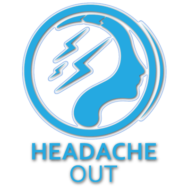Are you experiencing intense headaches that seem to radiate from the back of your head towards your temples? You may be suffering from a rare condition known as Rams Horn Headache. In this article, we will explore the symptoms, causes, and treatment options for this debilitating condition. Whether you have been recently diagnosed or are seeking more information, this comprehensive guide will help you better understand Rams Horn Headache and how to manage it effectively.
Table of Contents
Symptoms of Rams Horn Headache
Severe throbbing pain
One of the most common symptoms of Rams Horn Headache is a severe throbbing pain in the head. This pain is often described as intense and can be debilitating for those experiencing it.
Pain on one side of the head
Another key symptom of Rams Horn Headache is the presence of pain on one side of the head. This unilateral pain can be localized to a specific area or can radiate outwards, causing discomfort in the surrounding areas.
Pain that worsens with physical activity
Individuals suffering from Rams Horn Headache may notice that their pain worsens with physical activity. This can include activities such as exercise, bending over, or even just moving around. The increased blood flow and pressure in the head during physical exertion can exacerbate the already intense pain of a Rams Horn Headache.
Causes of Rams Horn Headache
Blood vessel abnormalities
Blood vessel abnormalities, such as arteriovenous malformations or aneurysms, can contribute to the development of Rams Horn Headaches. These abnormalities can cause increased pressure within the blood vessels in the brain, leading to severe headaches.
Genetic factors
Genetic factors can also play a role in the development of Rams Horn Headaches. Individuals with a family history of migraines or other types of headaches may be more likely to experience this type of headache.
Injury or trauma to the head
Injury or trauma to the head, such as a concussion or skull fracture, can trigger Rams Horn Headaches. The impact from the injury can disrupt the normal functioning of the brain and its blood vessels, leading to persistent headaches.
Treatment for Rams Horn Headache
Medications for pain relief
There are several medications that can help alleviate the pain associated with Rams Horn Headaches. Over-the-counter pain relievers such as ibuprofen or acetaminophen can be effective in managing mild to moderate pain. For more severe pain, your doctor may prescribe stronger pain medications such as opioids. It is important to follow your doctor’s instructions carefully when taking these medications to avoid potential side effects.
Lifestyle changes and stress management
In addition to medication, making lifestyle changes and practicing stress management techniques can also help alleviate Rams Horn Headaches. It is important to maintain a healthy diet, exercise regularly, and get an adequate amount of sleep each night. Additionally, practicing relaxation techniques such as deep breathing, meditation, or yoga can help reduce stress and tension, which may trigger headaches.
Surgical options for severe cases
In some cases, surgical intervention may be necessary to treat severe Rams Horn Headaches. Surgical options for this condition may include nerve decompression surgery or occipital nerve stimulation. These procedures can help relieve pressure on the nerves that may be causing the headaches and provide long-term relief for individuals who have not responded to other treatment options. It is important to consult with a neurologist or headache specialist to determine if surgery is the right option for you.
Final Thoughts:
Rams Horn Headaches can be a debilitating condition that greatly impacts the quality of life for those affected. By understanding the symptoms, causes, and treatment options available, individuals can better manage their condition and seek appropriate medical care. It is important to consult with a healthcare provider if you are experiencing chronic headaches or other concerning symptoms. With proper diagnosis and treatment, individuals can find relief and improve their overall well-being.
FAQs:
What are the common symptoms of Rams Horn Headache?
- Rams Horn Headache typically presents with persistent, throbbing pain around the temples or forehead. Other symptoms may include sensitivity to light and sound, nausea, and blurred vision.
What are the potential causes of Rams Horn Headache?
- While the exact cause is not always clear, factors such as stress, muscle tension, eye strain, and certain medical conditions like migraines or tension headaches can contribute to Rams Horn Headache.
How is Rams Horn Headache diagnosed?
- Diagnosis often involves a thorough medical history review, physical examination, and possibly imaging tests like MRI or CT scans to rule out underlying conditions.
What treatment options are available for Rams Horn Headache?
- Treatment may include over-the-counter pain relievers, prescription medications, relaxation techniques, lifestyle adjustments, and in some cases, preventive measures to manage triggers.
Can Rams Horn Headache be prevented?
- While it may not always be possible to prevent Rams Horn Headache entirely, adopting healthy lifestyle habits such as managing stress, getting adequate sleep, staying hydrated, and practicing good posture can help reduce the frequency and severity of headaches.
When should I seek medical attention for Rams Horn Headache?
- It’s important to consult a healthcare professional if you experience severe or persistent headaches, headaches accompanied by neurological symptoms like weakness or confusion, or if your headaches significantly impact your daily life despite trying self-care measures.
